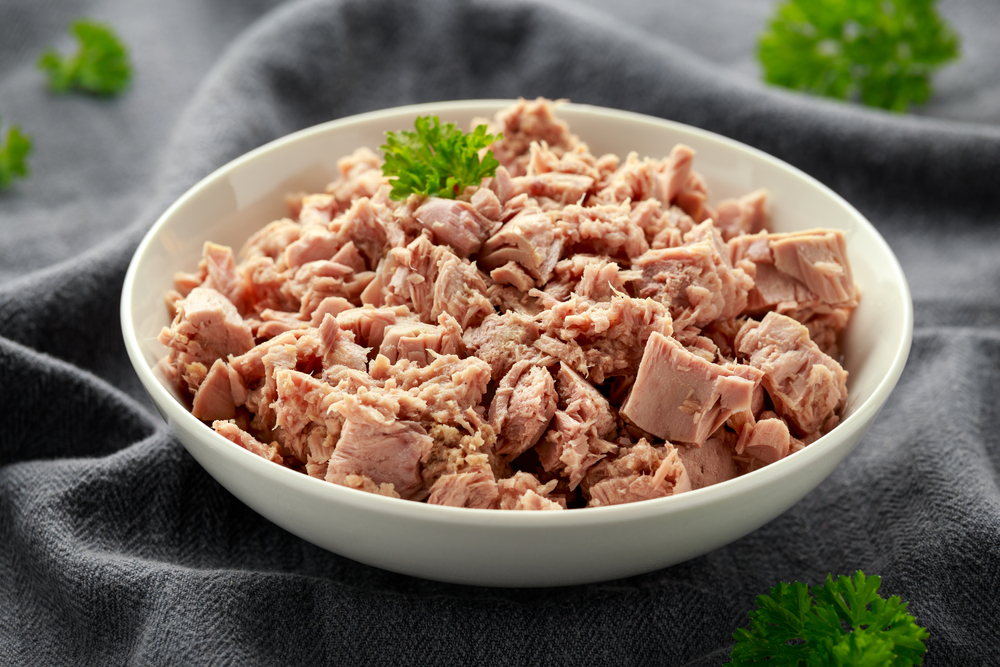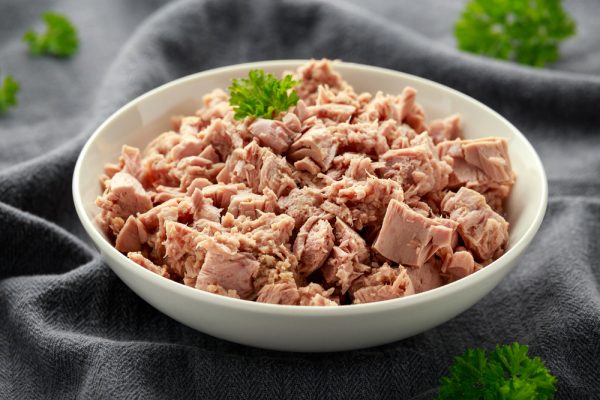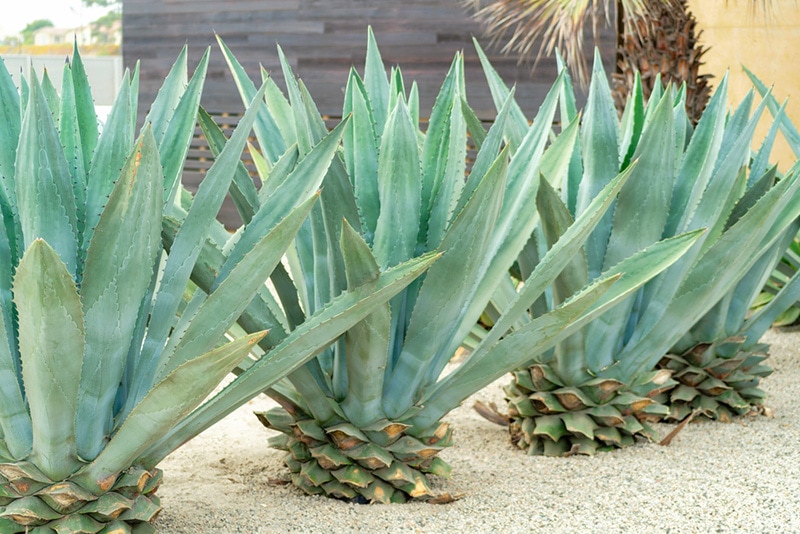Click to Skip Ahead
Many dogs love fish, and its strong, distinctive scent never fails to get their mouths watering, but does that mean dogs can safely eat tuna? Tuna is not immediately toxic to dogs. Adult dogs can eat plain, water-packed, light canned tuna in moderation however, you need to be mindful of the amount of mercury your dog is consuming when they eat tuna.
Certain kinds of fish—including albacore tuna—have higher mercury content and are not a good option for dogs, although they are not inherently toxic, so a one-off meal is unlikely to hurt them. Read on to find out more.

Why Can’t Dogs Eat a Lot of Tuna?
Tuna is a large fish that’s harvested quite late in life, and this means over time there is a build-up of the heavy metal called mercury in the fish’s tissues. Fish meat in general has higher concentrations of mercury compared to chicken or beef, therefore even commercial fish based dog food has higher mercury concentrations than diets based on other proteins. However, it has been concluded that commercial fish based diets are unlikely to cause any mercury poisoning in dogs 1.
Mercury poisoning due to chronic exposure is unlikely in domestic animals. Most cases of mercury poisoning are due to exposure to inorganic mercury sources. That being said, it’s a good idea to be on the safe side with dogs, and assume they are more sensitive to mercury in food than we are. In addition, fetuses and young animals may be more sensitive to the effects of mercury, so dietary mercury is best avoided in pregnant female dogs and puppies.
While mercury poisoning is uncommon, it can be severe so we recommend exercising caution, and not feeding tuna as the only source of protein in your dog’s diet. Your dog won’t be missing out if you don’t offer tuna regularly, and if only fish must be fed due to a food allergy, there are options with lower mercury levels which should be used.
Be mindful of the human recommendations for tuna consumption, and remember to take the weight of your dog into consideration; smaller dogs will have a lower tolerance for mercury in the diet.

Benefits & Dangers of Feeding Tuna to Dogs
Tuna is low in fat and a source of various nutrients including protein, omega-3 fatty acids, niacin, selenium, vitamin B12, and vitamin D, so your dog may receive some benefits from small amounts on occasion. For example, omega-3 fatty acids are good for keeping the coat healthy and shiny. However, there are some risks involved in feeding too much tuna to a dog. Let’s explore this further.
Mercury Poisoning
A case of mercury poisoning was documented in the 90s; the source of toxicity was not identified in this case but chronic consumption of fish was suggested as a plausible cause. The early signs of mercury poisoning are subtle and include brain and nervous system depression.
Later signs of mercury poisoning include diarrhea, vomiting, lethargy, appetite loss, struggling to walk, incoordination, convulsions, and tremors.
In some cases, mercury poisoning can cause dogs to go blind or suffer from kidney failure. Paralysis and anorexia are also a possibility for dogs with serious mercury poisoning, and it can be fatal. Please contact a vet right away if you suspect mercury poisoning.

Stomach Upset
If your dog eats tuna packed in oil, this could lead to gastrointestinal upset because the oil is too harsh on the system. Your dog may vomit and/or experience diarrhea. In serious cases, pancreatitis may be triggered by the consumption of too much oil, so be careful about the kind of tuna your dog eats.
Small amounts of water-packed tuna should be the only kind offered and—again—in moderation only. If your dog has managed to eat a lot of tuna—especially oil-packed tuna—be on the lookout for after-effects and contact your vet if you spot anything strange.
Parasites
Raw tuna and other kinds of fish and meat can carry pathogens that could cause diseases. Salmonella and Listeria are two of the possible infection types dogs and humans may get from raw fish. On that basis, the American Veterinary Medical Association does not recommend feeding raw animal products to dogs or cats.

Seasoning Toxicity
If you do feed tuna on occasion, make sure it’s only plain, water-packed canned tuna and that there are no added oils. These can cause pancreatitis in dogs. Additionally some seasonings like onions and garlic are toxic to dogs. Other additives may be simply irritating to their gastrointestinal system and cause digestive upset.

Which Fish Have the Highest Mercury?
You can check the mercury content of certain seafoods on the US Food and Drug Administration (FDA) website. In addition to albacore tuna, a few other kinds of fish can contain very high mercury levels so are not recommended for dogs.
- Albacore tuna
- Bigeye tuna
- Yellowfin tuna
- Tilefish
- Shark
- Swordfish
- King mackerel
What Kinds of Fish Are Safe for Dogs?
If your dog is a fish fan, they’re in luck because there are plenty of safe types they can eat as a treat. These are harvested much earlier than unsafe types of fish so their mercury levels aren’t as high, and several can be found in dog food formulas. Remember to feed these plain, cooked, and without seasonings, and feed in moderation only.
As a reminder, your dog’s complete and balanced food formula should be the bulk of their diet, and treats should make up no more than 10% of the daily calorie intake. Even the safe fish listed below should be treated as occasional snacks rather than a regular part of the diet unless they’re part of a complete and balanced food formula that you feed every day.

Conclusion
Tuna is a tricky business because while a little bit now and then isn’t considered harmful to dogs, going overboard can make them sick, so be sure to be mindful of how much tuna you are offering your dog, and stick to fish with a lower mercury content. Ideally, your dog’s main protein source is from dog food, and some light canned tuna in water is given as a treat occasionally. They don’t need to have tuna every day as there are plenty of accessible, safer fish options. Talk to your veterinarian if you are wanting to provide a healthy, balanced, fish diet to your dog for health reasons.
Featured Image Credit: DronG, Shutterstock











